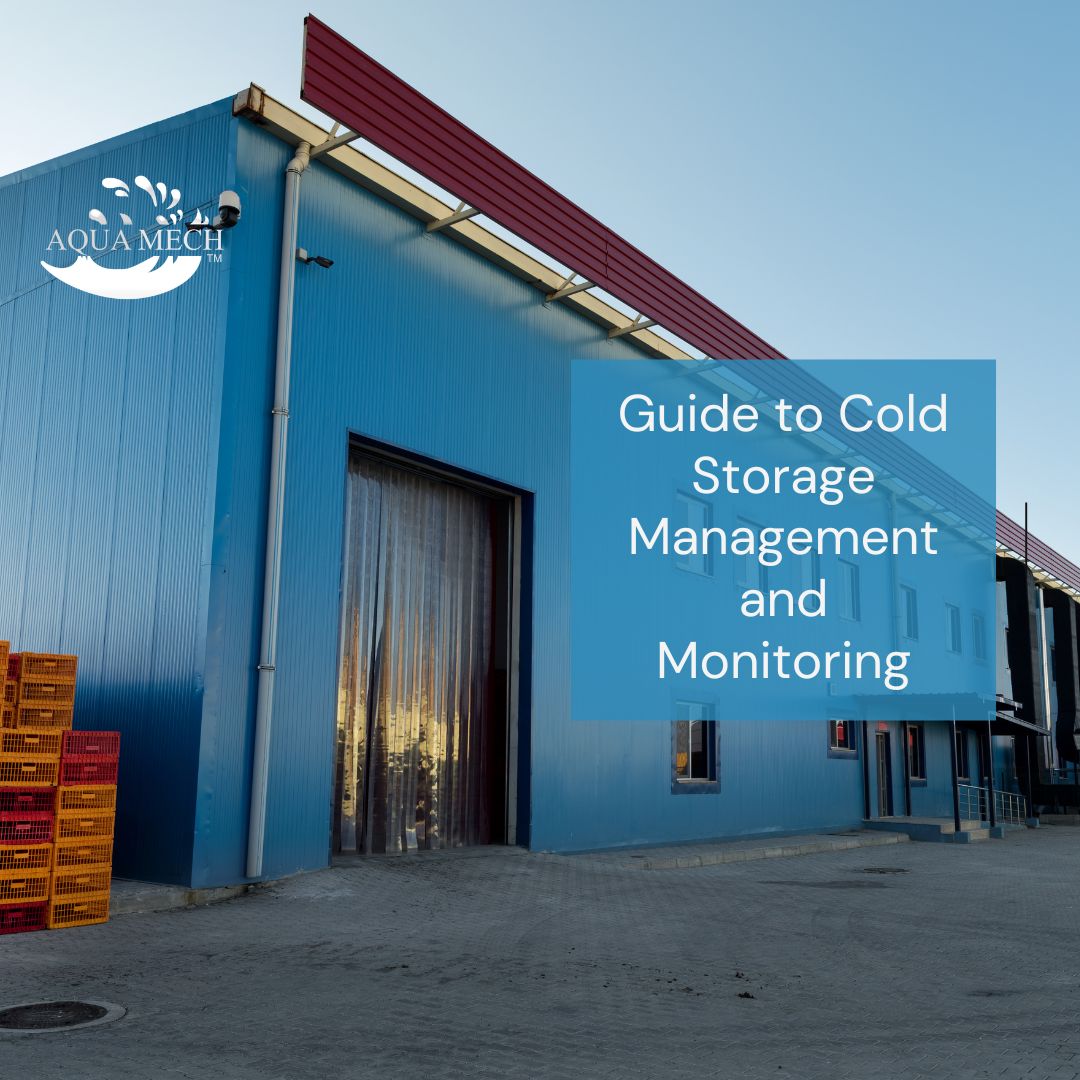Physical Address
304 North Cardinal St.
Dorchester Center, MA 02124
Physical Address
304 North Cardinal St.
Dorchester Center, MA 02124

Correctly maintaining the temperature of perishable products is necessary to preserve quality and safety. This article explores the best practices for Cold Storage Management for Cold Facility (CF) Managers.
Temperature:
“Improving temperature control can go a long way to maintain quality and thus increase sales, but it comes with unique challenges.
Temperature requirements vary depending on the product. Vegetables, for example, are kept at 12.78°C, dairy products at 1.11°C, ice cream at -23.33°C, pharmaceuticals and vaccines at 2°C to 8°C and some even at -18° to -23°C. If we take too long to change the temperature, the products can deteriorate.
Automatic Temperature Control Systems offer faster solutions and save labor costs.
By constructing a barrier between the individual temperature zones, the difficulty of storing all of these items in the same warehouse can be overcome. This decreases the amount of space that needs to be cooled during specific temperature ranges while also lowering energy costs.
Humidity:
In cold storage, humidity regulation is especially important. High humidity levels in facilities, especially during the summer, can disrupt production processes, resulting in delays and financial losses.
Controlling air humidity in cold storage is important for food preservation. Foods are hygroscopic materials, which means that their properties differ greatly depending on the air’s humidity, rather than just the temperature.
Fruits, vegetables, cheeses, meats, and other foods are held at low temperatures to facilitate cold-chain logistics and cheese ripening. Proper humidity control in cold storage is needed for these processes.
Also, humidity control is needed for chemical storage and seed storage, which are sensitive to humidity.
At Benchbio, Valsad, Aquamech built a cold room with a temperature of 10-15°C for seed storage and a humidity regulation RH of 45%. To maintain low humidity, we installed desiccant-style dehumidifier storage in the cold room.
Similar cold rooms were also provided for some chemical storage, where humidity control was as critical as temperature control.
Since temperature and humidity are continuously changing, temperature control of perishable goods and refrigerated properties is important to ensure storage conditions meet industry standards.
Warehouse management is difficult to track for Pharma & Confectioneries companies, particularly when they are in remote locations since it necessitates complete temperature and humidity regulation in cold storage am.
Aquamech offers cutting-edge modular temperature and humidity control units that produce useful utility data and continuous monitoring systems like:
Cold storage warehouses come in a variety of sizes and configurations, from single units to whole dedicated buildings. Let’s look at them more closely.
Refrigerated containers, the simplest and most cost-effective of all, are ideal for cold storage with small quantities of temperature-sensitive products. These containers are usually mobile due to their small size.

Aquamech customized and installed a container-type cold room at Mumbai Airport Authority. We modified a 40-foot container to include a sliding door on the front side of the cold room, allowing for a wide opening and full access to perishables stored. Also included a sideways emergency door with a hinged swing form.
Paneling was installed inside the cold room and besides the sliding door, condensing units were mounted on top of the container, and evaporators were installed within the cold room.
It was completely mobile, and it was transferred from the imports division to the exports division depending on the load in that section.
2. Cold Rooms for the Hospitality Industry:
Cold rooms play an important role in the hospitality industry. It keeps the freshness and hygiene of perishable items and maintains stocks for longer periods.

Aquamech has built nearly 20 cold rooms for different parts of Oberoi Flight Kitchens in Mumbai, including the bakery, hot kitchen chiller and freezer, and their canteen.
We’ve also installed cold rooms at various restaurants, including the Nando’s chain, Bhagat Tarachand common kitchens, Bikanervala, Food Darzee, 10 cold rooms at Nesco common kitchens, and several 5-star restaurants in India.
2. Cold Storages for Hospitals and Research Institutes:
Hospitals and research institutes use feature-packed cold storage warehouses. These units deal with biopharmaceuticals, blood, and vaccines.


Aquamech has supplied walk-in cold rooms in hospitals for pharmacy storage and mortuary units at Nair Hospital, DY Patil Hospital, KDMC Hospital, Kalyan Bhiwandi Hospital, Hinduja Hospital, and many more.
3. Plant Attached Cold Storage Warehouse:
Some manufacturers choose to have their cold storage warehouse in-house and have it connected to their plants. Products can be transported directly from manufacturing to a dedicated on-site cold storage warehouse using a conveyor or through forklifts.

Aquamech has supplied walk-in cold rooms for pharmaceutical companies with multiple locations, like Cipla, Lupin, Glenmark, Mylan, Biocon, Sovereign Pharma, Aarti Industries, etc.
We have also supplied cold storage facilities to edible and specialty oil companies like AAK Kamani, chemicals companies like Hyosung, fragrance, flavor manufacturing companies like Keva Flavours, and many more.
4. Dedicated Custom Cold Storage Warehouse Facilities
Those that don’t want to pay for an entire cold storage warehouse may use a custom cold storage warehouse run by a third-party logistics provider.

Aquamech has the distinction of constructing one of the first Freon-based cold storage at a huge one lakh sq. ft warehouse housing dry fruits and spices. We have also set up large warehouses for pharmaceutical logistics companies like Pfizer, Merck, Lupin, Zoetis, Boehringer Ingelheim, Abbott, and many more.
5. Fish and Seafood Cold Storage:
Chilling, freezing, and cold storage play a crucial role in controlling foodborne pathogens and extending the storage period. Freezing fish correctly can greatly improve the flavor and look of your fish, as well as minimize wastage.

Aquamech has worked closely with the Central Fisheries Research Center for their fishery cold storage needs.
Aquamech can assist with cold storage performance and operating cost optimization. Feel free to contact our design head Navdeep Sethi for any assistance.